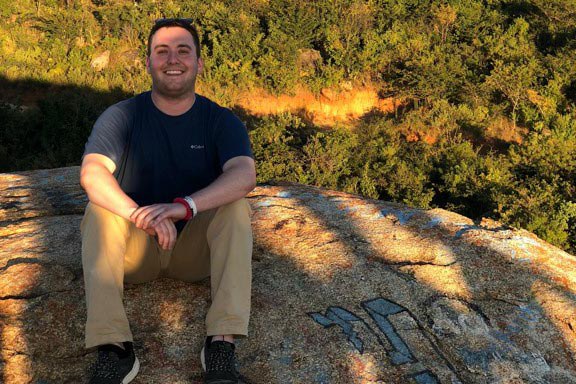Posted: July 2, 2019
I have never had another experience that pushed me out of my comfort zone and taught me so much about myself and the world around me. I will truly carry the lessons I learned during this trip every day for the rest of my life.
If you would have told me in high school that when I came to Penn State I would have the opportunity to travel to Tanzania for 5 weeks, I don't think I would have believed you, but this is just one of the amazing opportunities I have had at Penn State. Early on in my Penn State career I heard of the Global Health Minor and that students interested in healthcare would be able to go abroad to learn more about global health. I chose to study abroad in Tanzania because the program would give me the opportunity to immerse myself in the Tanzanian culture by living there and learning Swahili, while it also gave me an in-depth look at public health in the region.
As I mentioned before, I participated in a 5-week study abroad program in Iringa, Tanzania with the Penn State Global Health Minor. This fieldwork experience was the capstone of my minor as it was the culmination of many different courses I took before going abroad such as introduction to global health, epidemiology, ecology of infectious disease, etc. Something unique to this location for fieldwork was that I lived on campus at Ruaha Catholic University and was surrounded by Tanzanian college students.
I think one of the most challenging aspects of this program was communicating with the local people. I went into the experience with a very limited knowledge of the Swahili language, but daily Swahili lessons definitely helped. By the end of the trip I was able to talk to the kitchen staff to order my own meals, which may not seem like much but it was a big accomplishment in my eyes! Walking and shopping around the city was intimidating at first because I did not know the language but I kept practicing and I loved when the locals would help me get through a sentence so that I could communicate with them.
One of the major aspects of this trip was the opportunity to visit various non-governmental organizations (NGOs) to see how they were working with the local communities to solve health and sanitation problems, water and food insecurity, etc. It was really amazing because I talked so much about these issues in my classes but being in country allowed me to experience everything with my own eyes and taught me so much more than what a text book could ever teach me.
A typical day in my program would be to wake up either at 8 or 9am to go to the dining hall for breakfast and then travel to a different NGO to learn about the organization and their outreach. After the visit, we would debrief with my entire cohort and our professors to talk about what we learned on the visit. We would then grab lunch from the dining hall or a local vendor, and then it was time for our daily one hour-long Swahili lesson. Following that was a cultural activity that ranged from hikes, to jewelry making, etc. After our day was over we would normally meet back in our classroom to finish our homework and other assignments for the trip. My day-to-day reminded me a lot of being a college student because I had to learn how to balance my schoolwork with all of the other lessons/activities we had each day. I have never had another experience that pushed me out of my comfort zone and taught me so much about myself and the world around me. I will truly carry the lessons I learned during this trip every day for the rest of my life
Ag Sciences Global
Address
106 Agricultural Administration BuildingUniversity Park, PA 16802
- Email globalag@psu.edu
- Office 814-863-0249
- Fax 814-865-3055
Ag Sciences Global
Address
106 Agricultural Administration BuildingUniversity Park, PA 16802
- Email globalag@psu.edu
- Office 814-863-0249
- Fax 814-865-3055


